|
Free time in the outdoors is challenging. As an experienced outdoor ed teacher other than lightning, high winds and trees falling over, free time is always my biggest concern. “Why’s that?” you ask. “Isn’t this just quiet down time?”
No!!!! Who told you that? It’s actually the causation of the majority of injuries on outdoor programs. “What?” I hear parents scream in the distance. Yes, that’s true, it’s not the activities such as abseiling, or high ropes which have a very high level of perceived risk that are the problem and causation of many injuries. It’s the sitting around doing nothing at outdoor centres which leads to many of the injuries we see in outdoor programs. The Budawang and Etrema Wilderness areas are some of the most rugged and challenging areas in which to hike in NSW. Having led many groups through both these wilderness areas over the years, filled with snakes, hippies, crazed possums and often a shortage of access to fresh water and evacuation routes, the thought of simply hanging around on an outdoor campus with a group of students for free time, is more worrying than anything I ever could have and did encounter in those tough, unforgiving wilderness areas. In recent years, I’ve noticed a changing phenomenon. Kids are really rubbish at doing free time, especially when there’s no structured activity going on. Most children’s lives, especially with two working parents, have become so over-structured that the idea that they might have to entertain themselves or find happiness in quiet time is something completely foreign. This is a real problem for our over-stimulated children, who on camp generally don’t have the option of pulling out their phone to play pointless addictive and life-wasting games to stave off the threat of a lack of over-stimulation and having to socialise in a meaningful way. Unfortunately, what happens as a result of children who are not used to free-time being given lots of free time, is that stupid and poorly thought out games start. These can often result in running around dangerously in areas with which they’re unfamiliar and not always well-supervised in. The other potential negative scenario is that to cure their boredom, they look for other unhealthy things to do, such as picking on each other in unpleasant ways. It’s no surprise that the majority of outdoor education injuries occur during this time. There’s a false sense of security which goes with being in a hard-top cabin style outdoor ed location. The idea is that it’s not really that risky compared with the activities that were being done during the day. How can you compare that high ropes course which scared the life out of everyone, with sitting around talking or more likely running around madly. Sometimes, teachers can think that once the activities are over, then it’s also their own ‘free time,’ so they can relax a little. Sadly I’ve seen far too much of this over the years and ultimately, if you’re on duty and sitting on the lounge inside a building where you can’t see any children and thinking you’re providing suitable supervision and an effective duty of care, then you’re a moron and should not be teaching. If you’re reading this blog, I would suggest that’s not you, but I’ve seen it first hand and it’s unsurprising the majority of injuries on outdoor programs happen during free time at outdoor centres. How do we reduce the incidence of injuries when we know kids are finding it increasingly difficult to do free-time? Firstly, don’t employ idiots! This is a good basis upon which to start. However, if you’re lucky enough to have a good staff, as part of your pre-program safety briefing, highlight this as a key risk that you need everyone to look out for. Give a couple of examples if you’ve seen things as I have of what can and does happen when supervision becomes laxed, or a false sense of security is created by the differential between an activity such as abseiling and hanging around dorms. However, one huge opportunity is to run some structured games during this free time. Sure, it means teachers have to run another activity, but that’s far preferable to the trip to hospital and the awkward phone calls back to home and school to explain what happened and why there’s a student in hospital after ‘free-time’ injury. To be honest, I’ve had to make a lot of phone calls over the years in regards to injuries, but the most awkward and difficult ones to deal with are the free-time ones, because they’re really hard to explain the reasons as to why they happened. A fall from a mountain bike which caused a broken wrist is far easier to explain and manage and has less blow back, than trying to explain why a shoulder was dislocated inside a dormitory. The reality is that children do find free-time increasingly difficult due to the over-stimulation and over scheduling of their lives. Whilst it would be great to think they can have some much needed free-time, this has often proven to be some of the most risky periods of time during outdoor ed programs where the most injuries occur. The best option is to ease students into the idea of free-time by structuring some initiative games, group activities, or light exercise during these times, rather than just ‘free-time.’ As a result, you’ll spend less time patching kids up, going to hospital and having awkward conversations.
0 Comments
Computer games are fun! Let’s be honest! Who hasn’t sat on a computer or device for hours trying to move up a level or defeat a boss in some sort of computer game. Candy crush was my poison and it was totally addictive until I deleted it and went cold turkey. I’d managed to complete 257 levels before I’d realised I was an addict and had to stop.
Similarly, other games such as Diablo (1,2 & 3) and COD (Call of Duty) became temporary black holes for my time, sapping away hours upon hours with mindless action, collecting lots of gold and killing countless zombies, orcs and dodgy Russians! Whilst this was a lot of fun, I did get bored with them quite quickly. However, the danger for many people, including myself, is when addiction and time spent on these games consumes everything and reaches unhealthy levels. Game play is a clever art in itself, which is designed to play on people’s desire for endless hits of dopamine and adrenaline. It’s the reward for success and the fight or flight mechanism which has ensured our survival through the ages. However, what’s the cost of this unnatural stimulation of these chemicals in our bodies? I recently saw a kid engrossed in a café game on a tablet. Having run my own café, I watched for a bit, interested to see what sort of idea a game developer had come up with for this. The basic idea was that you, the player, was preparing meals, serving customers and collecting money all at once. The game was timed and so as the time elapsed, the customers became increasingly dissatisfied when not served. Whilst this is true and challenging in real life, as customers don’t like to be left waiting, what’s the point of this in a game targeted at kids? As I watched, I noticed the level of anxiety increase in the kid who was playing. The speed at which the customers appeared increased, as did the frustration of trying to achieve the goals of the game. With so many games like this targeted at children, there needs to be more done to regulate such designs. With processes designed specifically to manipulate the behaviour of children, there needs to be a level of accountability that comes from these developers. What moral code of ethics are they working under that makes them feel justified in designing systems that increase anxiety and build addictions. The long-term impact of this is yet to be seen. However, there’s already an increasing trend of greater mental health problems in children and teenagers. It’s high time that software developers who target children with their products, provide age warnings, based upon potential anxiety and addiction, rather than just sex and violence, for their products. Games can and should be enjoyed by those playing them, not as yet another source of anxiety and degradation to people’s mental health that they can become. Parents should be vigilant in their approach and assessment of games for their children, but at the same time, there really is a moral and ethical responsibility for developers to do something about this growing issue, when just like smoking, their products can have a lasting detrimental effect on people. One thing everyone’s looking for is someone who is genuine. This is a real challenge in education because often teachers are placed in situations where they’re teaching something that they’re not particularly interested in. As a result, they don’t have the passion, they don’t have the enthusiasm and therefore, they don’t have that genuine vibe and engagement in what they’re doing. I noticed this myself the other day.
I was supervising a group of students and there were two activities going on. One was table tennis and the other was monopoly. I’ve never really liked table tennis and so I always avoid it and I make up endless excuses as to why I can’t play. Even though it could be quite beneficial and would help me to develop a rapport with some students with whom otherwise it’s hard to develop, in reality, playing the game wasn’t worth it for some superficial rapport. If I were to play, since I wasn’t really interested in it myself, I mightn’t put much effort into playing. It would have ended up being counter productive. The students would easily see through this and ultimately there’d be no point in pretending I was enjoying what I was doing. As experiential education is as much about relationships as it is about pushing boundaries, there’s no actual benefit from engaging in some sort of activity such as table tennis, if you’re not genuine about it yourself. Conversely, there was the game of monopoly being played and one of the kids said to me, “Hey Sir, do you want to be on my team?” My immediate reply was, “Sure! Sounds like fun!” The difference was that I love Monopoly. However, I made sure that I didn’t take over control of the game, because even though I’m pretty competitive at Monopoly, I was still the invited number two team member. On a side note, Monopoly is so much fun. I always love having the car but we didn’t get the car. Actually, I also like the battleship, as well and the dog, but I digress. Anyway the point is, it’s such a fun game and the difference here was that when I was involved, I was attentive, I was exploring options, I was whispering strategies and tactics with my teammate and we were taking turns of rolling the dice. The fact that I was genuinely interested in playing the game made all the difference and it’s something you just can’t make up or fudge your way through. The end result was that I got to know more about my teammate than I otherwise would have and it created a rapport that enabled far better engagement from him in many other activities. To be able to engage students effectively is just as much, if not more about the positive role modeling that you can provide as a teacher than your knowledge in any specific subject area. This helps you draw on that positive, professional relationship to be able to encourage students when they’re struggling with their own challenges or even just in helping shape their attitude towards new activities or ways of thinking. Suddenly, through doing something that you really enjoy (and it doesn’t have to be Monopoly), it can open up dialogues later on and enables you to teach more effectively because when students see that you’re interested, passionate and engaged in something, they’re more likely to become interested, passionate and engaged in other things as well. This can only come from when you’re honest and genuine about what your own interests and passions are. Don’t try to ‘fake it until you make it,’ as kids will see through this every time. Just be yourself and things will naturally fall into place. As an important footnote here, we actually won Monopoly so I was very happy with that, but at the end of the day, it was more to do with the fact that for over an hour a whole group of students and I played an interesting, fun-filled game that everyone wanted to play and left with a better connection than before. This week I'm going to cover both an awesome activity and a story of a team whose origins are most unlikely, yet remarkable in such a way. The team proved that you can achieve anything you set your sights on, even if you haven't exactly set your sights on it! I love unique challenges and the FIRST (For Inspiration & Recognition of Science & Technology) Robotics is just one of those. It's something I would have loved to have done when I was at school. I might have ended up as a coder, or engineer as this is a true hands on problem solving challenge. The closest I came was getting handcuffed to a flag pole at maths camp in year 8. However, I digress. Over the years, I've seen snippets of different robotics challenges, but never something like this. With our federal politicians focussed on innovation, the story hit the headline news in Australia with the Prime Minister in attendance. The next thing I knew, my local high school is there, centre stage having won the Australian event!!! In that one exciting jaw dropping moment, I had to look into this in some more detail. So to begin with what's it all about? Whilst I'm sure the official explanation on the FIRST Robotics website is way better and it has some cool vids, the challenge is essentially to design, build, program and operate a robot that can navigate its way around obstacles, score goals with balls, throw frisbees or balance on beams. It's an awesome mix that requires teams to plan strategies, problem solve, think 10 steps head and be ready at any moment to adapt! A wonderful and challenging opportunity for any student. The overall premise of the ‘sport’ is one of gracious professionalism, a valiant and honourable theme for a competition, so you know there’s way more to it than just winning. So enter the Ulladulla Game of Drones, a ‘rookie team’ whose first year in the competition has thrust them into the spotlight as winners of our National Championships, destining them for St. Louis, smack bang in the middle of the USA! The team started from a shout out by one of the Ulladulla High teachers to see if there were any interest. To begin with, there wasn’t much... A far cry from some other teams in the championships who have to limit the number of students in their team. However, if the story ended there it would be very short and there wouldn't have been a big community dinner to go to the other night. Slowly but surely, interest started to trickle in and a team emerged with a variety of skills and talents from engineering to coding to media, but as I was told by Mason, the team's all star photographer and media man, "Everyone pitched in to do a bit of everything. We didn't have a huge team like other schools, who were able to specialise and just do one task. If we saw that someone needed help, everyone just got in there and helped them out." Just for the record, the average size of a team is approximately 25 students! Although it can range anywhere from 2 to 150!!! Ulladulla High has 11! This is what I love so much about this challenge. It's less about the robots and the completion and more about the teamwork, problem solving and the experiential learning along the way. I asked the team how they kicked things off. "We started out with a closed Facebook group. Then used email, chat to set up meetings. We worked over the summer holidays on this. The first few weeks it was each Saturday. Then during school time, it was Tues, Wed Thurs after school, or whenever needed,” said Mason. Many afternoons turned into late nights as the team designed, built and tested their robot. The coding came down to Lara, Riley and Jackson. "Some people were better at engineering than others and then some better at coding,” said Lara, who had to learn Java along the way. "With coding you tell the robot what to do. You use it to add and assigning commands to buttons." Since the team only had experience in coding C++ they had to learn Java, really fast! So I asked them how they did this? "We used different websites to get the robot moving and using other resources to expand on this. Once you know the basics, it gets easy!” commented Lara. "Also YouTube is awesome!" Without any expectations, or grand visions, the team went to the national championships held at Sydney Olympic. They were told they were a 'rookie team’ and were never going to win, yet they did! This is testament to both their persistence and their attitude, which is so important. If you have a negative attitude, you will never get anywhere. If you have a positive attitude and give it your all… You can achieve anything! For all the details on the win, check out Jackson’s awesome speech! This was a major project management task and something a lot of adults could never see through. That's what impressed me so much when I was talking with these guys. I admired the tenacity to just get in there and learn something completely new, help each other out and work towards a shared goal that had so many individually complex tasks to it that all had to be somehow drawn together. I asked the team members what they wanted to get out of this. I loved their answer. It's about learning some news skills, but mostly about meeting new people and making new friends. We never had the intention to win. It was always just being able to be part of it. Check out our Australian team from Ulladulla High
House of Ulladulla Game of Drones on Faceboook https://www.facebook.com/UlladullaHS/ And a video on their journey Game of Drones Check out all the awesome FIRST Robotics stuff on their website and #omgrobots on Instagram! @FIRSTweets on Twitter! https://www.facebook.com/FIRSTOfficial/ on Faceboook There are so many fantastic team building activities for kids, which can vary from simple trust activities with little to no equipment, right up to obstacle courses or races that require significant preparation. However for the purposes of simplicity here are three simple ones which I love to use. 1. Entangled Hands: Get the kids to stand in a circle shoulder to shoulder and put all their hands into the circle and take someone else's hands. They can't both be the same person's hand! Then they have to work as a team to unravel the knot of hands without letting go until they're all standing in one big circle hand in hand. This is a fun activity that kids can get into and do with no equipment needed. Key to the success of the team in this game is effective communication. There's lots of communication needed to achieve the untangled circle, as it will involve co-ordinating with each other, stepping up over arms and twisting around every which way! A great variant to add in is for them to do it without talking! 2. Shared Sight: You're going to need a blindfold, two ropes and a couple of random obstacles for this one! Lay out the ropes so they snake around the room to make up a course that must be travelled, then randomly place some obstacles such as soft toys or drink cans along the way! The idea is that one kid is blind-folded and the other, using only their voice has to safely guide them through the course without touching any of the obstacles or the rope along the way. This game not only requires communication, but a huge amount of trust as well, therefore helping to meld participants into a cohesive team. Huge Amount Of Trust Needed For This Activity 3. Raft Building: This activity requires a few pieces of equipment, including poly pipe capped at each end, empty sealable barrels and some lengths of rope. The wider the selection of items the better, because it allows for greater variation in design and greater creativity from the kids. You will also need to be near a creek/river/pool for this challenge and there's a great chance that everyone's going to get wet!!! In small groups of 4-6 kids, set clear parameters as to how many pieces of equipment they can use. From the collection of materials they then select and use these limited resources to build a sea-worthy raft, that will not only float, but safely carry all members of the team across the river and back. It's amazing how many variations of a raft are created each time, some far more effective than others. In this activity the kids must work together to design, build, then paddle the raft as a team. It's a great way to engage all members of the team and whilst some may be stronger in design or building, others may be stronger in paddling and steering. The real test comes when the kids have to carry the raft down to the river banks and it hits the water for the first time!! Does it float? Yes!!! Does it float with everyone on it?... Well ummm... There are a huge range of skills being developed in this activity and it's such a fun one to do. It builds confidence, communication, leadership, teamwork, trust, cooperation and coordination! Even if the raft completely falls apart on the water, it's the process the kids have used in creating that craft that's so important in the overall learning process. If all else fails, you're still going to have a great laugh seeing these makeshift vessels breakup and see the kids scrambling to grab all the pieces before they float away!
|
Categories
All
Archives
April 2021
|
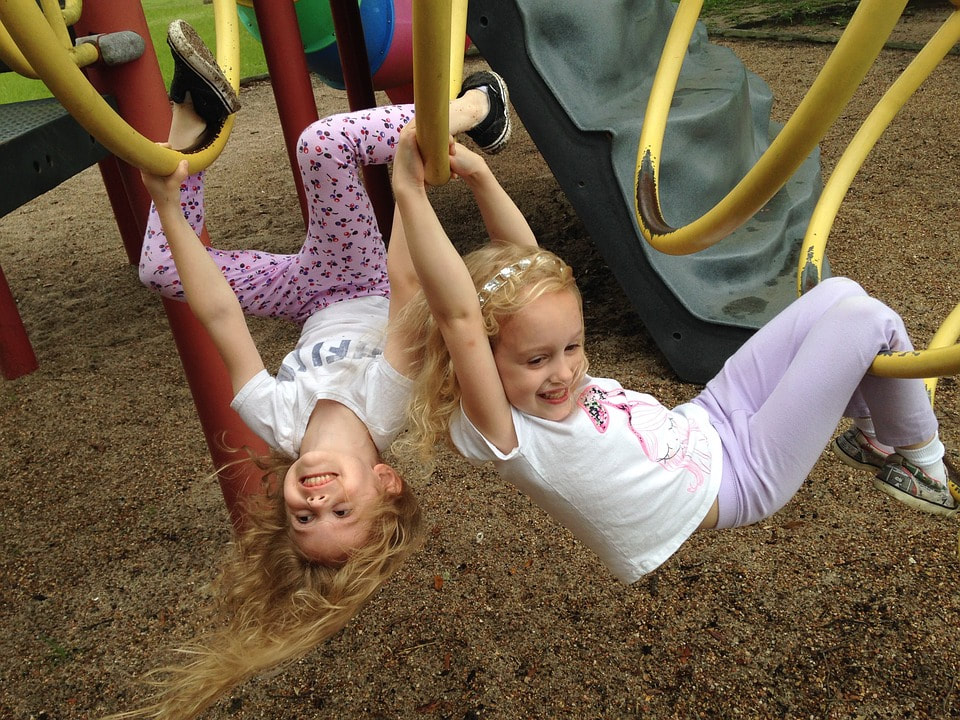
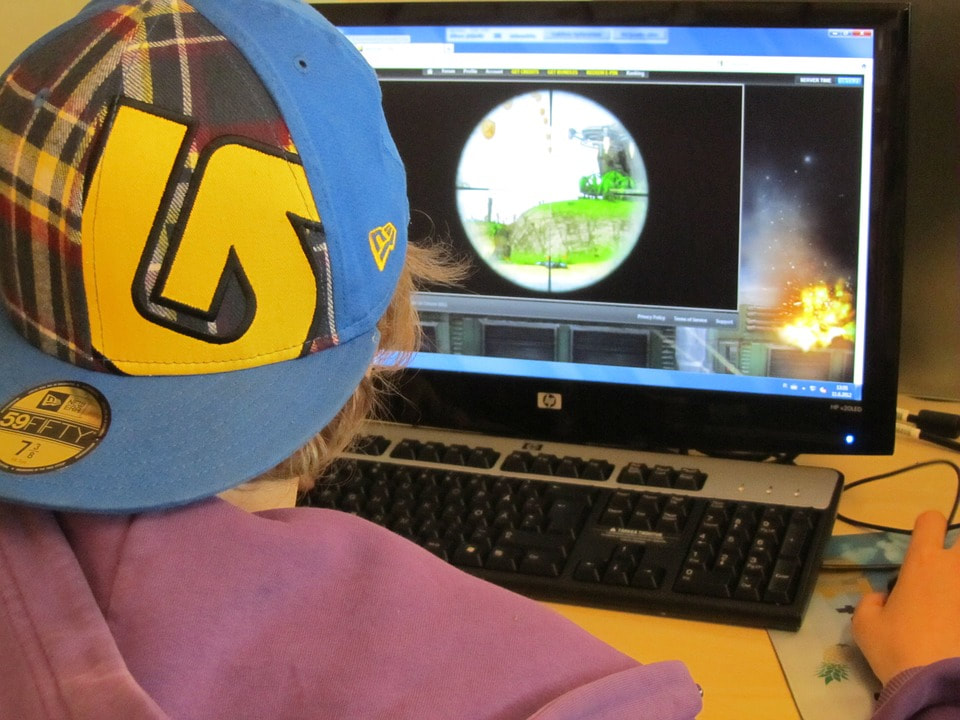
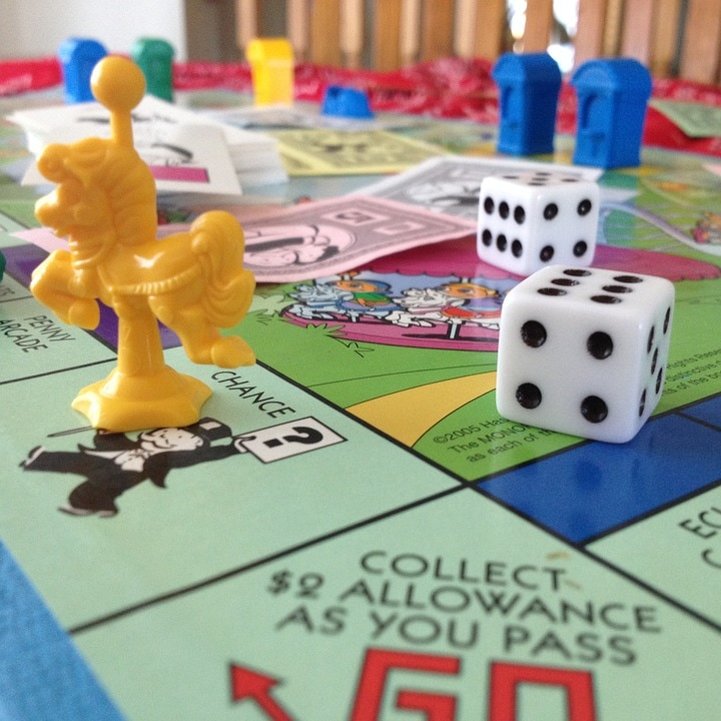
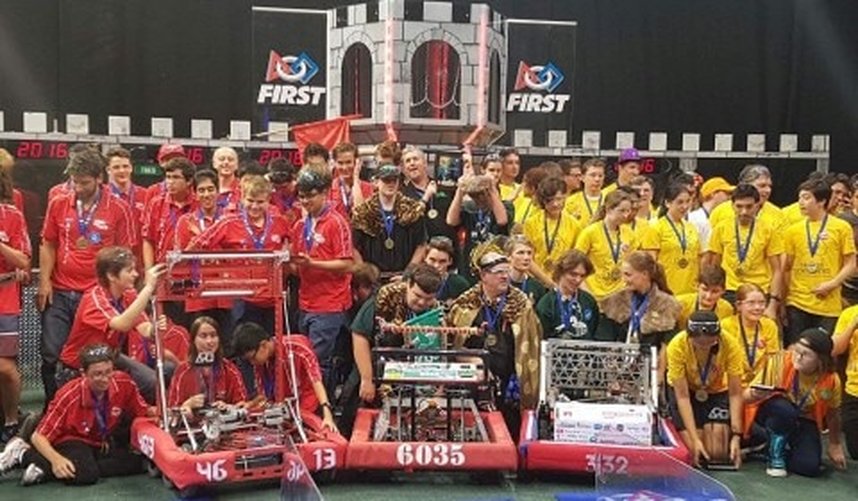
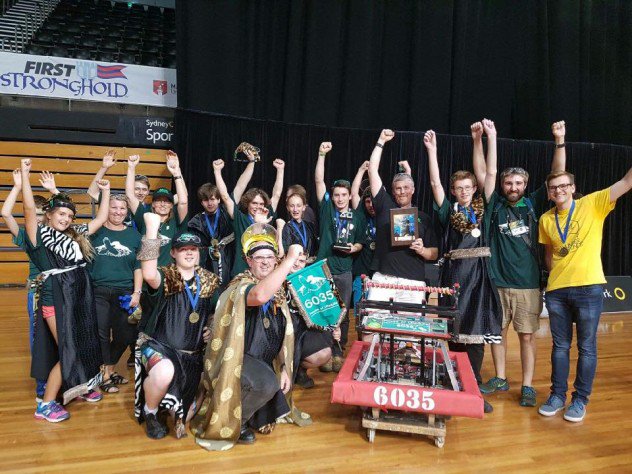
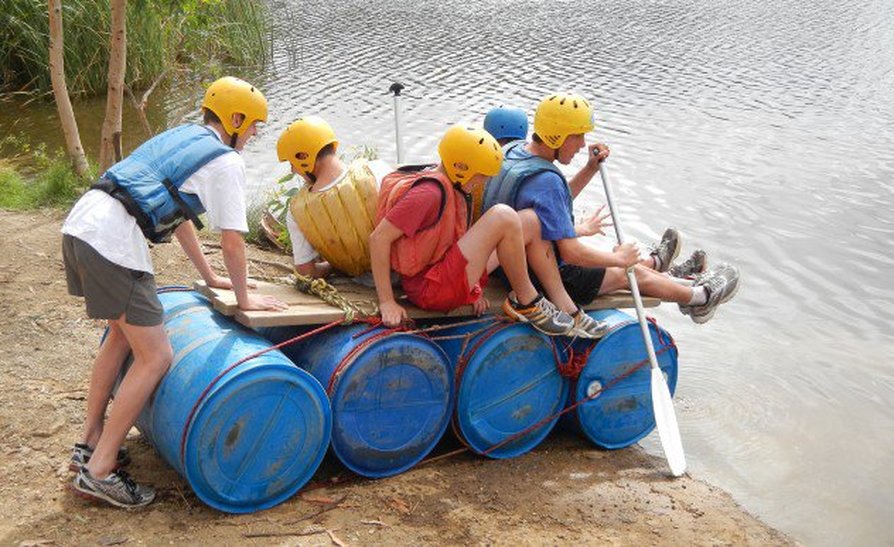
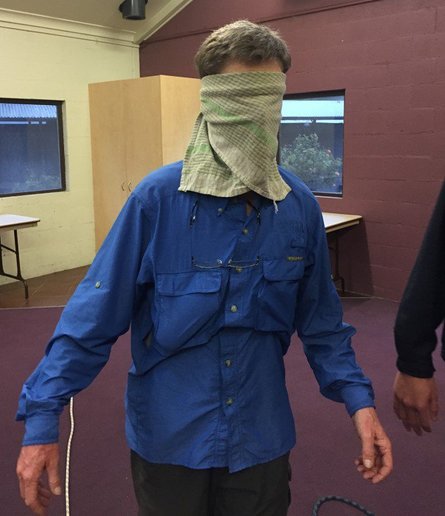
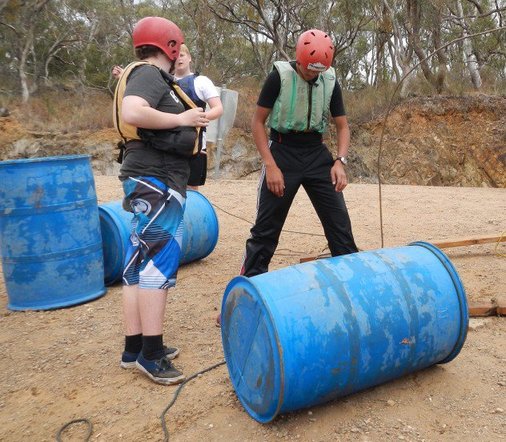
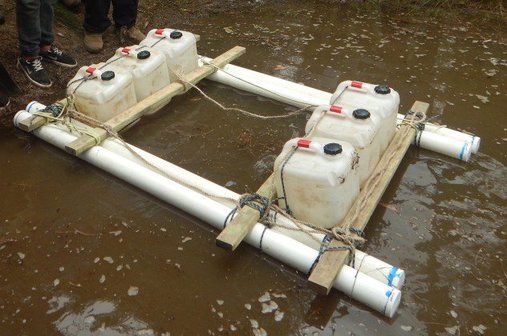
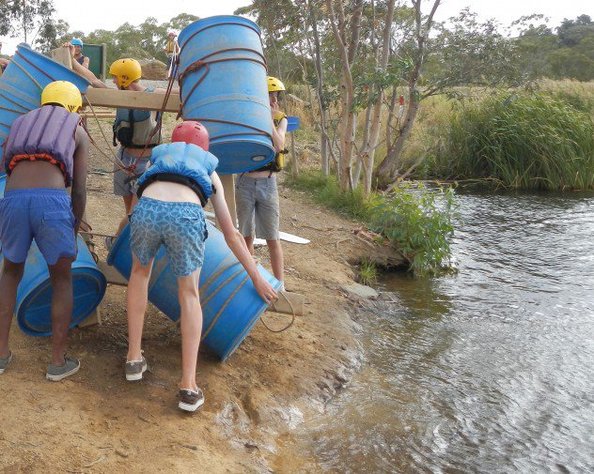
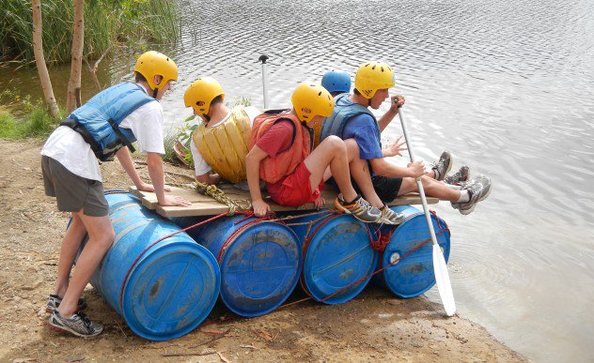
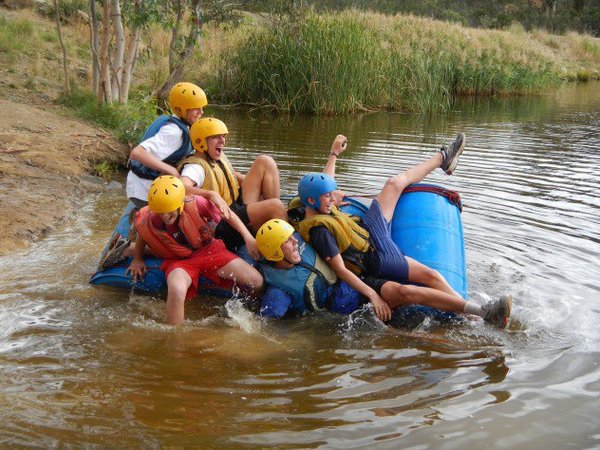
 RSS Feed
RSS Feed